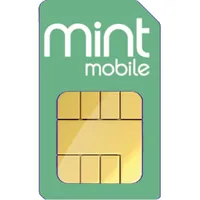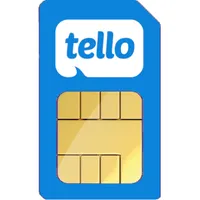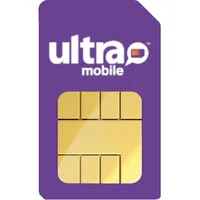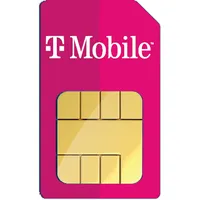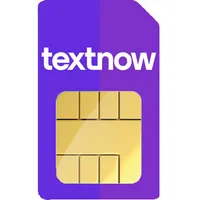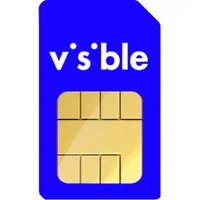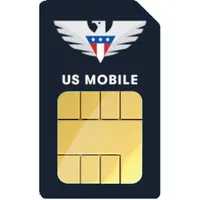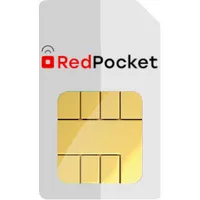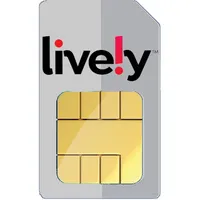The best cell phone plans for seniors for 2024
Here are the best cell phone plans for seniors for you to consider this month
Sign up for breaking news, reviews, opinion, top tech deals, and more.
You are now subscribed
Your newsletter sign-up was successful
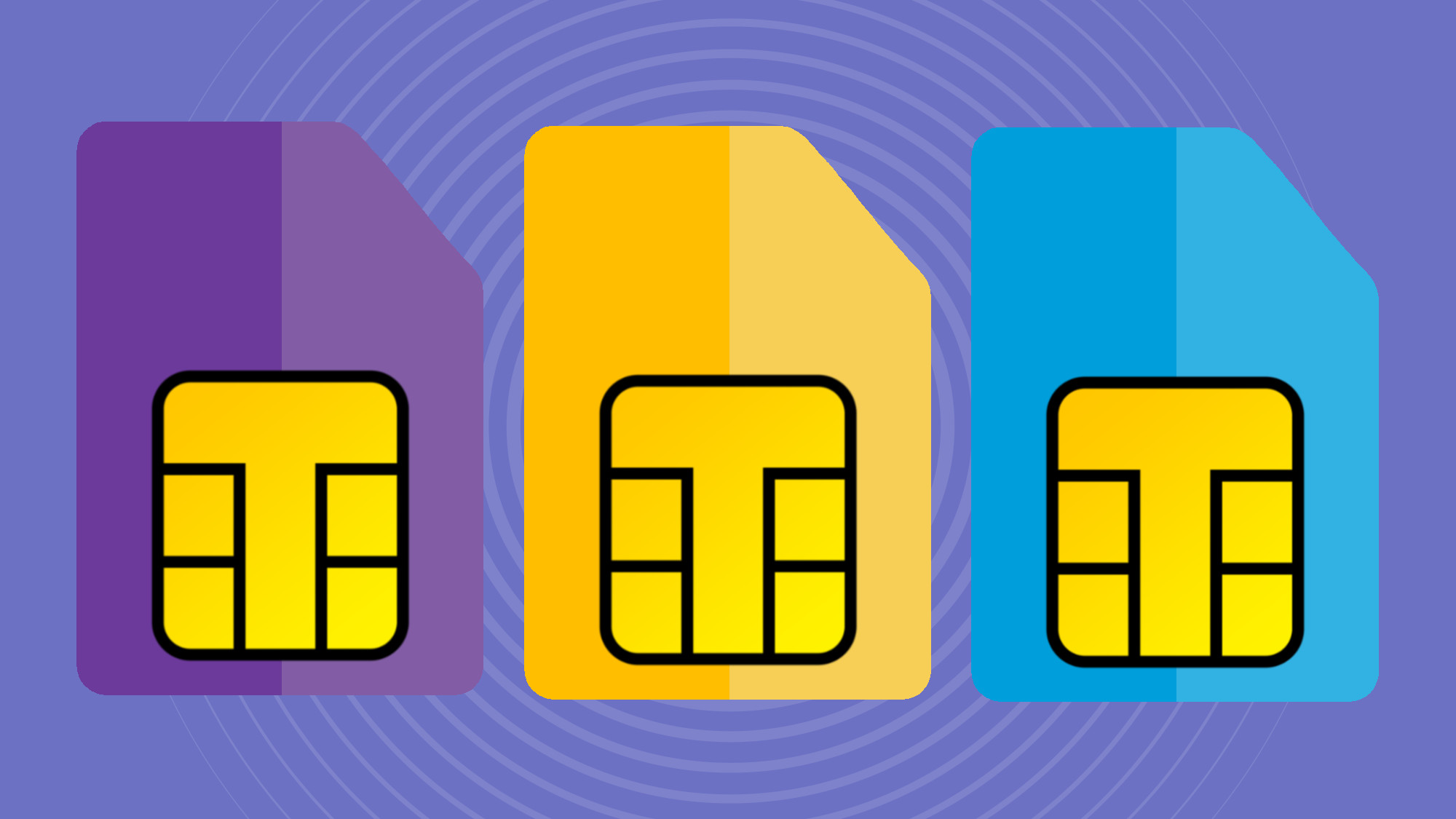
Quick links
1. Top tips & jargon explained
2. The best cell phone plans for seniors
FAQ:
1. Finding the right plan
2. How much data do I need?
3. Who am I best covered with?
Finding the best cell phone plans for seniors needn't be a hassle - it can actually be relatively simple thanks to our handy guide. We've tirelessly researched all the nation's favorite carriers (and a few up-and-comers) to determine which ones, in our opinion, offer particularly strong options for older citizens.
Like all phone users, the requirements of older folks differ widely from person to person, so we've made sure our best cell phone plans for seniors takes into account a wide array of differing requirements. Just need the basics? We've got you covered with some fantastic, easy-to-use plans. Alternatively, if you're interested in getting a plan with unlimited data then you'll also find the best value options rounded up here.
On each entry further down the page you'll find detailed information on why we think these are the best cell phone plans for seniors right now. At the top of the page, we've also included some initial tips and information to help you cut through the jargon and find the best senior cell phone plan for your needs. If you'd like to see a run-down of the market as a whole, head on over to our main best cell phone plans article to see our top contenders this month.
Add TextNow and Red Pocket (great low data options). Amendments to US Mobile and T-Mobile based on plan changes for 2024.
The best cell phones for seniors: quick list
- Mint Mobile - best all-rounder
- Tello - best for flexibility
- Ultra Mobile - best pay as you go
- T-Mobile - best unlimited data plan
- US Cellular - best non-data plan
Advice and tips
5G: the latest, fastest phone network connection
Data allowance: how much internet you can use
Prepaid: no-contract plan renewed each month
Postpaid: contracted plan paid for in installments
Pay as you go: only pay for what you use
Coverage: how good cellular service is near you
1. Determine budget
Set an upper limit to how much you're willing to spend
2. Determine data usage
More data equals higher bills, so cut out what you don't need
3. Check if you're covered
Check to see if you're best covered on AT&T, Verizon, or T-Mobile
4. Compare the market
See who offers the cheapest rate possible for your requirements
best cell phone plans for seniors
1. Best overall cell phone plan for seniors
Read moreRead less▼
Mint Mobile | T-Mobile network | 3-12 month contract | 5GB - Unl. data | $15 - $30 per month
It's really hard to beat Mint Mobile if you're a senior looking for a no-nonsense good value plan. This prepaid carrier offers a flexible array of plans that cover most users - from those who just need a little bit of data to those who would prefer unlimited data. Generally speaking, all data allowances are competitively priced and Mint even has its own 55+ plan that allows seniors to automatically enroll on the cheapest 5GB data plan and pay just $15 per month. Under normal circumstances, users have to pay for a full year of data upfront to get this super-low monthly price at Mint so this barrier to entry is much lower for seniors.
2. Best plan for flexibility
Read moreRead less▼
Tello | T-Mobile network | 1 month contract | 0Mb - unlimited data | $5- $25 per month
Tello is a carrier that operates a rather unique 'build-your-own' plan system that sounds complicated, but in reality, is really simple. Using the easy-to-use slider you can decide exactly how much data, texts, and monthly call minutes you need, and the monthly rates are really competitive too. What makes Tello really great is that you can easily modify your plan too, so you're not locked into a specific plan should your needs change. It's also recently dropped prices across most of its plans which makes it easily one of the most competitively priced prepaid options on the market right now. If you're interested, there are also Tello promo codes available to help you save a little more.
3. Best pay as you go cell phone plan for seniors
Read moreRead less▼
Ultra Mobile | T-Mobile network | 1 month contract | 100Mb data | $3 per month
If you need the basics - and we mean just the basics - then you could consider Ultra Mobile's pay-as-you-go service. With this prepaid plan you'll pay an entry fee of just $3 a month for 100Mb of data, 100 texts, and 100 minutes of calls - pretty much the cheapest on the market right now. Note, after your allowances are up, you'll pay 3 cents per minute for calls, 1 cent per text, and 3 cents for every MB of data usage. That's not much, but you'll definitely rack up extra costs if you're planning on using your device a lot.
4. Best unlimited data plan for seniors
Read moreRead less▼
T-Mobile Go5G 55+ | 24 month contract | unlimited data | $110 per month (2 lines)
T-Mobile is the best of the big carriers if you're looking for a unlimited data plan specifically catered for seniors. We say 'catered' for here, but in reality the Go5G 55+ plan is just one of the carriers full-fat standard unlimited plans with a handy discount for those 55 and up. While pricey, this plan includes access to phone upgrade deals, weekly perks, unlimited 4K UHD streaming, and a dedicated customer service team. If the Plus plan is a little to pricey for your tastes, another good option is T-Mobile's Essentials Choice 55 plan, which comes in at $30 per month but doesn't quite feature as many additional perks.
5. Best non-data plan
Read moreRead less▼
TextNow| T-Mobile network | no contract | unl. talk & text | data optional | no monthly cost
Don't need any data at all? You could consider TextNow - a mobile provider that offers nationwide calling and texting without the need for a contract or fees. Once you've paid the initial $5 fee to get a SIM card you'll get unlimited talk and text to your heart's content. If you do require data, then you can purchase one of TextNow's data passes - which range up to $5.99 for a full day of data. Overall, this is a very flexible system but note that the data passes can quickly add up if you're over reliant on them. If you think you'll need data at some point, then you'll likely get better value in the long run by going for a set-data plan at a prepaid carrier.
6. Cheap unlimited data for two lines
Read moreRead less▼
Visible Wireless | Verizon network | 1 month contract | unlimited data | $50 per month (2 lines)
For two lines, both Tello and Mint Mobile are extremely strong choices but we're going to include Visible Wireless as an outstanding choice. This carrier operates on the larger Verizon network offering fantastic coverage and offers a completely unlimited data plan for just $25 per month right now. That's basically the cheapest on the market right now and there are no hidden fees or tricky pricing setups to manage. While you'll need to setup two plans separately here (there's no specific plan for families or seniors), definitely consider Visible if you want a simple, well-costed plan that offers unlimited data without breaking the bank.
7. Cheap Verizon alternative
Read moreRead less▼
US Mobile | Verizon & T-Mobile networks | 1 month contract | unl. talk & text | $7.50 per month
No-data plans are becoming frustratingly difficult to find these days but the prepaid carrier US Mobile still operates some great options for those who don't care about data. The 'Kosher plan' in particular is a good choice here since it offers completely unlimited texts and minutes for just $7.50 per month. Even cheaper still is the 'Light plan' which offers 500MB of data, 500 texts. and 500 minutes for just $5 per month - a price that rivals even pay-as-you-go options from other carriers.
8. Cheap AT&T alternative
Read moreRead less▼
Red Pocket | AT&T network | 1-month or annual contract | 1GB - unlimited data | $7 - $40 per month
Red Pocket is one of our favorite prepaid carriers right now - particularly if you're looking for a cost-effective alternative to AT&T's pricey unlimited plans. It's rare to find a prepaid carrier operating on AT&T's network and Red Pocket has some of the best value plans on the market right now thanks to its option to pay for a full year of service upfront. It's basic 1GB plan, for example, comes in at just $89 upfront for a year - which equates to just $7 per month on average. If you don't want to commit, its pay-monthly plans are still great value - even the unlimited plan for $40 per month.
9. Best for peace of mind
Read moreRead less▼
Lively| Verizon network | 1 month contract | 0Mb - unlimited data | $19.99 to $49.99 per month
If you're looking for complete peace of mind then consider Lively (previously Great Call) - a service that operates exclusively for seniors and offers 24/7 emergency response with all its plans. With plans ranging from a basic no-data package all the way to a fully-featured Ultimate plan, this carrier also offers a range of exclusive senior-friendly smartphones too.
Best cell phone plans for seniors: FAQ
Finding the right senior cell phone plans
Determine your budget
The easiest and simplest criteria to consider when shopping around for the best cell phone plans for seniors is how much are you willing to spend? As with most things you get what you pay for with cell phone plans but being strict with your costing will be the best way to narrow down the field of choices. As a rule of thumb, we'd recommend spending no more than $25 a month per line if you're a light user.
Determine your usage
Generally speaking, higher data allowances mean higher bills - even for phone plans for seniors. Subsequently, the easiest way to cut your costs is to cut out any of that unneeded data and instead use the local Wi-Fi connections where possible. Note, you can also cut out minutes and text allowances too, although the savings don't tend to be as good there. If you need help working out how much data you'll need, simply scroll down to the next section.
Find which carrier has the best coverage in your area
Nearly all carriers, including the ones featured on our best cell phone plans for seniors list above, use the three major nationwide networks for service - Verizon, AT&T, and T-Mobile to be specific. Before you commit to any one plan, you'll definitely want to know whether you're well covered in your area. It's also worth asking around your friends and family to see who gets the best service and to find out what plans they're on. You can check your local coverage just below.
Compare the market
Finally, you'll want to thoroughly compare all carriers which fit within the criteria you've already set above. You'll probably find a good two to three different companies that fit the bill, so do a bit of further reading on each one or simply go with the one that looks to be the best value overall.
How much data do I need?
In this day and age, most people are using their cell phones to check social media, stream video content, or simply browse the internet. If you think you'll be doing any of those, then it's definitely worth paying a bit extra to get a data allowance on your cell phone plan.
If you need a bit of help determining how much data you'll need, here's a quick guide on how much data TechRadar recommends, based on common uses:
- Emailing and messaging - under 5GB of data a month
- Social media and web browsing - 5GB a month
- Streaming music - 10GB a month
- Streaming HD video - 10GB+ a month
Of course, if you see yourself simply calling and texting only, then you can forgo the data allowance altogether and opt for a cheaper plan - a few of which we've included on our best cell phone plans for seniors list above.
Who has the best coverage?
Nearly all carriers, including the ones on our best cell phone plans for seniors list operate their own network or under a big network. There are essentially three main networks at the moment - Verizon, AT&T, and T-Mobile - and they all have nationwide coverage of varying quality, depending on your location. If you want to see how good coverage will be in your area you can follow these links just below to visit each network's coverage check pages:
Follow the links above and simply enter your ZIP code to see if your local area is covered. Note - 4G coverage is pretty widespread now, but 5G (the latest and fastest network type) is still mostly confined to urban areas. If you want the fastest connection possible, then you should see who gives you the best 5G coverage in your area - but you'll also need a 5G-enabled device to use it.
Sign up for breaking news, reviews, opinion, top tech deals, and more.

Alex is TechRadar's retail editor, specializing in deals, buying advice, and general tips on how to save our readers as much cash as possible. He's covered events like Black Friday and Amazon in some capacity for over seven years now; both in editorial and other ecommerce adjacent roles on TechRadar, T3, GamesRadar, and other Future PLC sites. Alex's expertise touches on most areas, but he has a particular love for phones, laptops, and cameras, being an avid photographer.
